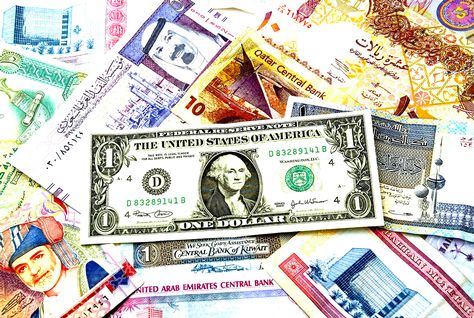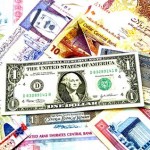Euro Is 0.3% From Two-Year Low Before Greek Ballot; Aussie Gains

The euro traded 0.3 percent from a two-year low as Greece’s prime minister attempts to get his presidential candidate confirmed and avoid an early parliamentary election that risks severing the nation’s international lifeline.
Australia’s dollar rose for a fourth day amid signs China, the nation’s biggest trading partner, is taking measures to spur lending to bolster economic growth. The euro is headed for a sixth month of losses against the dollar as European Central Bank President Mario Draghi worked to win consensus for sovereign-bond purchases by the central bank to revive inflation.
“The Greek vote should be something to watch out as a risk factor,” said Junichi Ishikawa, an analyst at IG Markets in Tokyo. “Improving fundamentals in the U.S. and speculation of fresh monetary easing by the ECB could lift global stock markets further, and if that is the case, the dollar could aim toward this year’s high against the yen before 2014 ends”.
The euro was little changed at $1.2197 as of 2 p.m. Tokyo time after depreciating to $1.2165 on Dec. 23, the weakest level since August 2012. The yen traded at 120.23 per dollar from 120.31 last week. It slid to 121.85 on Dec. 8, the least since July 2007. The yen was little changed at 146.66 euro.
Japan’s government said over the weekend that it approved a 3.5 trillion yen ($29 billion) fiscal stimulus package to boost the economy after April’s sales tax increase caused consumption to slump.
China Deposits
Australia’s dollar rose 0.2 percent to 81.38 U.S. cents. The People’s Bank of China will include savings held by lenders for non-deposit-taking financial institutions into bank deposits from 2015, the official Xinhua news agency reported.
The MSCI Asia Pacific Index (MXAP) rose 0.4 percent, heading for a two-week high. American equity gauges climbed to records last week as data showed U.S. gross domestic product increased at a 5 percent annual rate from July through September, the fastest pace since 2003.
The 18-nation shared currency has fallen 11 percent in the second half of this year, before policy makers meet Jan. 22.
Greek Prime Minister Antonis Samaras will today make a third and final attempt to get his candidate for president confirmed. Members of parliament will cast their ballots at noon in Athens with Samaras needing 180 votes in the 300-seat chamber to appoint his nominee, Stavros Dimas, as head of state.
Greek Election
Failure to elect Dimas will lead to a general election in late January or early February, a few weeks before the country’s 240 billion euros ($293 billion) bailout expires. Opinion polls show that opposition group Syriza, which plans to abandon the austerity measures and economic overhaul linked to Greece’s bailout agreements, would win power.
The rupiah rose to a two-week high against the dollar before the government prepares to announce a move to a fixed fuel subsidy system.
Overseas investors bought 2.1 trillion rupiah ($169 million) more rupiah sovereign notes than they sold on Dec. 23, halting a 15-day run of outflows, finance ministry data show.
The rupiah gained 0.5 percent from Dec. 24 to 12,408, prices from local banks show. It reached 12,395 earlier, the strongest level since Dec. 12.
Source: Bloomberg – Euro Is 0.3% From Two-Year Low Before Greek Ballot; Aussie Gains



























